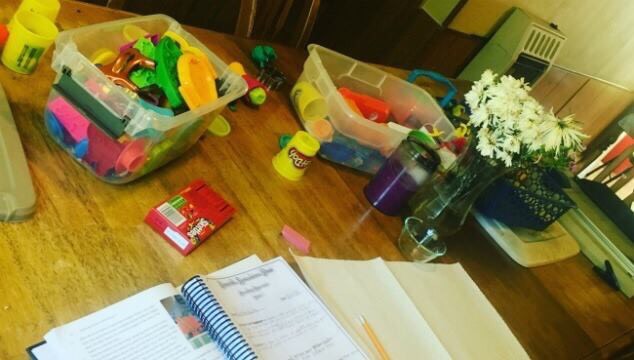Inside the eclectic education method of homeschooling

Eclectic education uses aspects of all other types of homeschooling methods in unison, catering education to the child. Eclectic homeschooling is about taking the aspects of other methods that you like, or that work for you, but not using each method’s complete structure.
Most homeschooling families become naturally eclectic over time, as they find what works for them and their children. What helps some children flourish may not work for others, so it’s an evolving process.
Method description
The eclectic education method is typically child directed, full of resources and not always curriculum based. It tends to treat curriculums like options and not a set framework.
It’s the most flexible of all the methods, because it can use all other methods together, or pieces of them. It depends completely on your goals, and your child’s learning style.
Many eclectic parent teachers decide to do Hybrid Homeschool: combining homeschooling and private or public school; sending their kids part of the week to private or public school, then homeschooling them for the rest of the week. This type of hybrid program would count as eclectic education, because of all the different components used within the curriculums at school and at home.
Eclectic education curriculums
Most eclectic homeschool families tend to use different curriculums for every subject, which is what makes them eclectic.
“Most homeschooling families are naturally eclectic in a lot of ways, using one type of curriculum for one subject, and a different one for other subjects,” said Ann Karako, a homeschooling consultant and author of, Annie and Everything, a blog about homeschooling high school. “What you can afford comes into play. It really depends on what kind of education the family wants them to have. It also depends on the time they have.”
Positives
Eclectic education is a very flexible method; it’s all about how your child learns, and what is the best thing to use to support them in their learning. It’s a popular option for homeschooling families who are just starting out, or even with kids who are transitioning to regular school or into homeschooling.
This method has the most resources available out of all homeschooling methods, because it can use everything available.
Negatives
Too much of a good thing can be bad. There are so many choices out there of different curriculums to use, or frameworks you can create yourself. It can be easy to get overwhelmed.
Some curriculums and programs do not mix well together, or create learning gaps if not employed properly. It’s not always easy to see the problems before they happen.
Having both traditional school and homeschooling means you could have the worst of both worlds: all the stress of traditional school with none of the time to decompress or relax at home.
Some parent teachers can be too hasty sometimes about changing their curriculums; they decide to take out pieces of the curriculums they’re working with before researching to make sure the rest of their framework balances out.
Why homeschoolers like it
“There are so many choices out there now,” Karako said. “It’s amazing how much flexibility and opportunities there are.”
Eclectic homeschooling is all about using everything that benefits you and your child. Because of all the variables, no eclectic family works alike, so every eclectic curriculum is unique to the family and their children’s needs.
“Eclectic homeschooling allows you to use a variety of methods that best fit your particular child and their needs,” said Misty Bailey, a homeschooling mom and author of the blog Joy in the Journey. “Some kids do great with textbooks, some don’t. Sometimes the parent’s teaching style doesn’t necessarily fit the child’s learning style. Eclectic homeschooling allows you to meet your children where they are.”
How eclectic education compares
“The biggest challenge may be the mentality of homeschooling methods in general,” Bailey said. “You may not fit in with the classical homeschoolers, or the Charlotte Mason homeschoolers because you are not taking an all or nothing approach. But there are plenty of eclectic homeschoolers out there. Find your tribe. They will love you regardless of what method you use.”
Eclectic homeschooling can be the most unique method, and therefore difficult to find others to connect with who do things similarly. It can be a difficult journey, especially if you’ve never homeschooled before.
“It is important to remember the why behind your choice to homeschool. Own it. Embrace it. Remember it. If you know your why it will get you through those hard days that make you want to give up. Homeschooling has taught me so many things. Because homeschooling is hard it has forced me to realize that I can’t do everything,” Bailey said.
Homeschooling can also be more of a challenge for parent teachers than the students themselves.
“My least favorite thing about homeschooling is how it stretches me, how it shows me my weaknesses,” Karako said. “We learn about ourselves and our shortcomings.”
